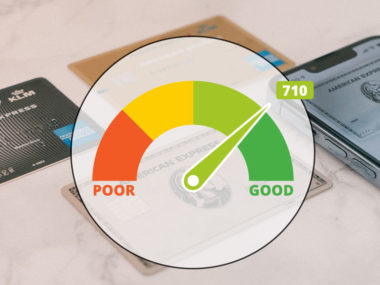Let’s answer the big question straight away: no, gender and credit do not have a direct correlation; gender is not a factor in calculating a credit score. That, however, is only the short answer. It does not reflect the reality many women face when it comes time to apply for a loan, where they may feel punished with higher interest rates simply for not being a man. Can gender affect your credit? Indirectly, yes, it can. Let’s look at how gender can affect your credit score.
Table of Contents
The Gender Pay Gap and Credit Scores
How are income, gender, and credit connected? It all centers on the gender pay gap. Data from 2016, collected by the Washington Post, showed women earned, on average, 80.5 percent what men do for full-time, year-round jobs. The Post noted that, “The typical woman earned $41,554 in 2016, while the average man took home $51,640.”
In the same year, women had an average credit score of 621 while men had 630 out of a possible 850. But, that doesn’t tell the whole story. It’s not just having a lower wage or salary that is causing women to have a lower credit score.
Gender and Debt
Overall debt was higher for men than women, at $25,225 to $21,171, or a debt-to-income ratio of 17 and 18. The more consumer debt someone is paying off, in general, the higher their credit score is.
Again, this does not fully explain why credit scores are lower for women. After all, if women had more debt, but lower pay, it would make sense. However, the ratios are nearly the same. There’s one final piece to the puzzle: how women generally utilize their credit.
Gender and Credit
Credit limits for men and women were also found to be different. While a man’s credit limit across all his credit cards averages $20,043, women only have around $17,159 to play with. This means women are able buy less on credit, on top of already having a lower income.
Credit utilization, how much of your credit limit you are using, is also important to solving the question as annual income, and is part of the credit score equation. Higher credit limits often mean the ability to spend more without your credit score being affected. For example, your credit utilization is higher, and hurts your credit score more, if you have used $3,000 of a $20,000 limit than of a $17,000 limit. Men have a slightly higher average balance at $3,854 to $3,624 for women. According to the data, men only use 19 percent of their credit limit, while women use 21 percent — but as we saw, men have a higher limit already. Despite their higher average balance, because they have a higher credit limit, their credit score is not as negatively impacted as are women’s accounts.
Are Credit Scores Sexist?
At the end of the day, no, credit scores are not openly sexist, but only because gender does not directly factor into credit score calculations. But let’s ask the question differently: Does being a woman impact your credit score? Data shows that yes, it absolutely does. Women make less money than men and have a reflexively lower credit limit, resulting in higher credit utilization, which is a factor in credit scores.
Improving Your Credit
To improve your credit under these circumstances, you have a few options. First, create a new personal budget. If you spend less and pay off your debt on time, your credit utilization will go down. Second, check your credit report for common mistakes. These could be harming your credit report through no fault of your own. It’s worth it to try to fix these mistakes and see an easy jump in your credit score. If an account has gone to collections, pay down the debt first, and consider hiring a company to help you repair your credit. While having children can decrease your credit score, it’s still possible to pay off debts as a single mother, have a bank account in the black, and work towards increasing your credit score.
Looking for more information on credit scores? Check out our resource center for more articles and guides.
Image Source: https://depositphotos.com/





